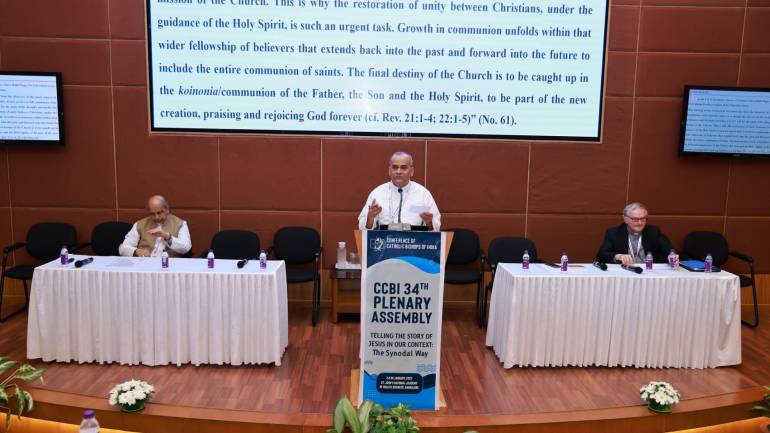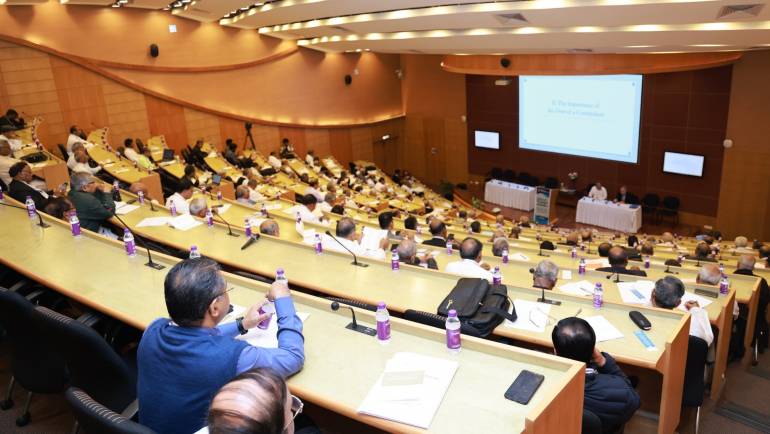Indian Bishops reflect on Synodality with Neighbour Religions and with Mother Earth

On the second day of the 34th Plenary Assembly of the Latin Bishops of India (CCBI), the bishops reflected on synodal ways and relationship with other religions and with mother earth.
Archbishop Felix Machado, of Vasai, highlighted the crying needs for engaging in cordial relationship with the neighbour religions for a harmonious living in the context of India.
Laying down some key points on how to build concretely a viable and lasting relationship with the other religions, he stated that handling ‘complexity, ambiguity and responsibility’ are three key challenges in maintaining a good relationship with people of other religions and cultures.
The Chairman, CCBI Commission for Ecology, Bishop Alwyn D’Silva, pointed out that “to proclaim the Gospel to the whole creation, we need first to foster holistic relationship with all His Creation.”
The ‘ecological conversion,’ taught by Pope Francis, calls for “discerning Synodality with creation, significance of ecological Synodality and conversion for ecological Synodality,” he added.

The day started with the solemn Holy Eucharist celebrated by His Excellency Archbishop Leopoldo Girelli, the Apostolic Nuncio to India and Nepal.
In his homily, Archbishop Girelli invited the bishops to further grow closer to the Gospel, like St. Paul shifting the focus away from self and placing it onto Christ.
“As Catholics, we are called to act as catalysts for the transformation of the world in accordance with God's plan,” said the Apostolic Nuncio.
“We, the CCBI Bishops, must not forget our task of being a headlight called to lead the Indian society to higher levels of justice, equality, inclusivity, solidarity and unity, based on the Gospel's values,” Archbishop Girelli added.
Monsignor Joseph Sayer, Former Director of Misereor, dwelt on the topic “Predicate Evangelium and its Implications for the Life and Leadership in the Church” and told that “the proclamation of the Gospel, he said, should not fail due to barriers of language and cultural diversity.”
He highlighted the aspects of inculturation, cultural diversity and multiplicity of worship in India and told that “unity of the Church should be built on cultural diversity.”
“The Church lived on and expressed herself through synodal ways of oneness, holiness, catholicity and apostolicity. Synodality challenges us to be open to others’ point of view, to be listeners more than talkers,” the prelate added.
In the afternoon, the bishops gathered in their respective regions to discuss and deliberate on the theme of the Plenary Assembly.
Radio Veritas Asia (RVA), a media platform of the Catholic Church, aims to share Christ. RVA started in 1969 as a continental Catholic radio station to serve Asian countries in their respective local language, thus earning the tag “the Voice of Asian Christianity.” Responding to the emerging context, RVA embraced media platforms to connect with the global Asian audience via its 21 language websites and various social media platforms.














